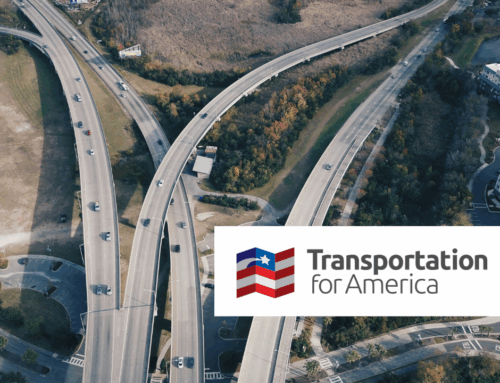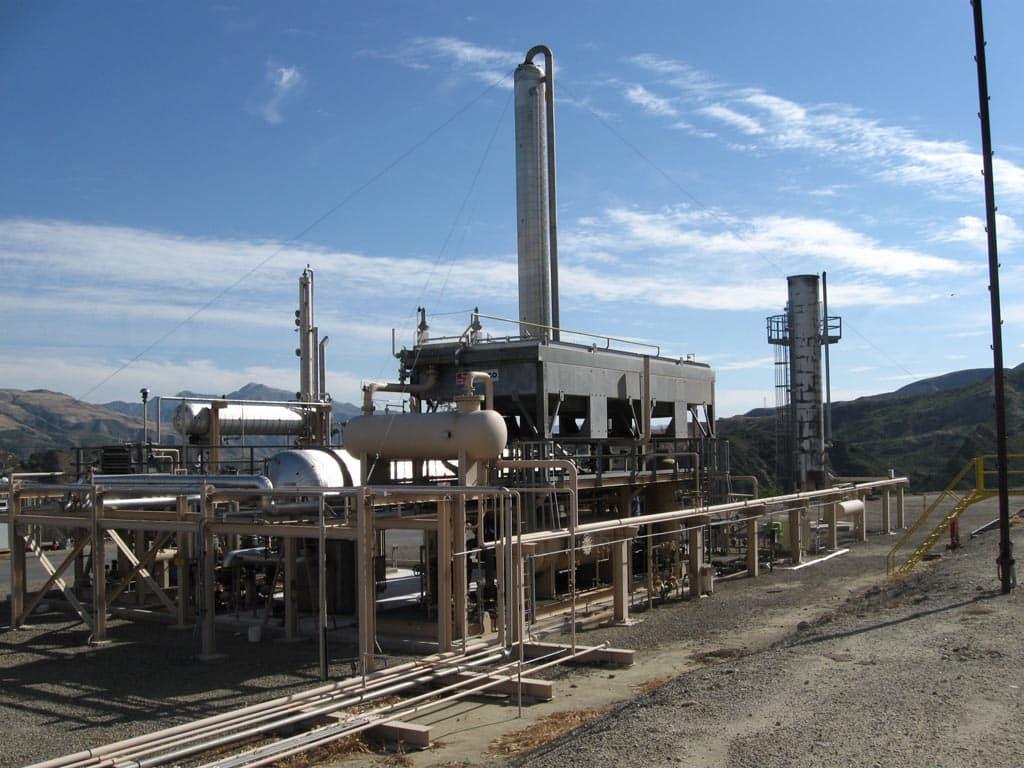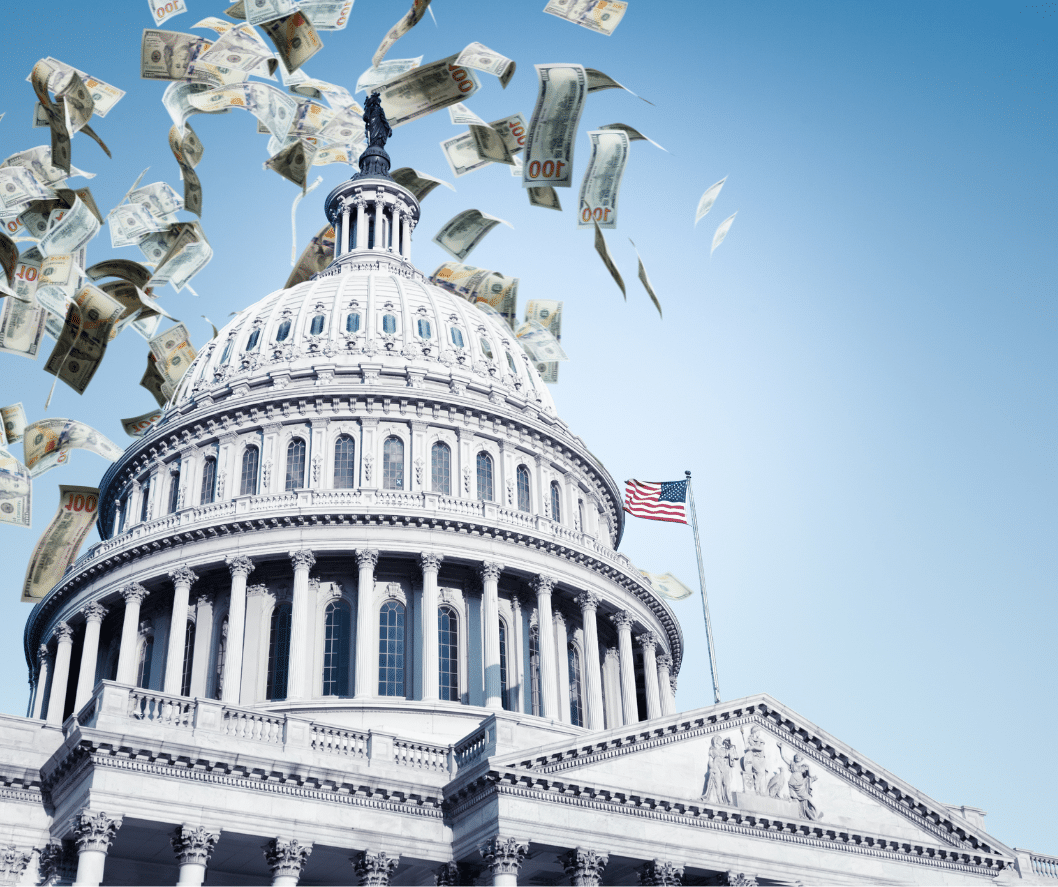The daunting challenges Congress faces in the next month regarding the nation's transportation programs when it returns next week:
1. Reauthorization or extension of the federal aviation program (expires Sept. 16)
Last month, Congress left town without extending the federal aviation program, and the result was the furlough of some 4,000 Federal Aviation Administration (FAA) employees and the idling of tens of thousands of contractors who were working on airport improvement projects. In addition, the aviation trust fund lost approximately $400 million, since the federal government was temporarily unable to collect aviation taxes. Public outcry finally brought the House and Senate together to pass a short-term extension, but it is unclear whether they'll come together to get a long-term reauthorization done in the less than two weeks they'll have until the program expires again. The same challenges remain (largely policy issues regarding unionization of aviation employees, but others as well) as did the last time the FAA was shut down, so a breakthrough will be required to get an extension or a reauthorization done this time.
One of the sticking points last time was the wasteful and unnecessary Essential Air Service program, which provides hundreds of millions in subsidies to rural airports. We'd love to see this program disappear (Alaska is the exception where distances are great and roads are few), but we'll even take the modest reforms of the program that the House and Senate bills both contain.
2. Reauthorization or extension of the nation's surface transportation program (expires Sept. 30)
The nation's surface transportation program is set to expire on September 30th. This leaves little time for Congress to pass a full reauthorization bill, let alone come to an agreement over extending the current legislation.
Right now, the House and Senate have two widely different reauthorization proposals. House Transportation and Infrastructure Committee Chair John Mica (R-FL) has released the outline of a six-year bill with $230 billion in funding, which is approximately equal to what federal fuel tax revenues are expected to be over that time period. Having revenue match expenditures makes sense, but Congress hasn't been operating the transportation program (or, for that matter, the entire federal government – look at the $1.3 trillion deficit) this way. Spending more than the trust fund brings in led to several bailouts over the past few years totaling $35 billion to keep the program in the black. This lower funding level proposed by Rep. Mica would require an almost 30 percent cut in highway and transit programs compared to funding in the last long-term transportation bill. The decline in fuel tax collections are largely the result of: improving vehicle efficiency; reduced consumption in response to higher gas prices; and a fuel tax rate that has remain unchanged since 1993, and therefore seen its purchasing power diminished by inflation.
On other side of the Hill, Senate Environment and Public Works Committee Chair Barbara Boxer (D-CA), proposes a two-year transportation bill that keeps funding for highway and transit programs at existing levels, with a small increase for inflation. This would amount to $109 billion over the next two years, which would be approximately $34 billion more than expected HTF revenues. Sen. Boxer's bill would fill this gap by spending down the small trust fund balance to zero (projected to be approximately $21.7 billion at the end of FY2011, according to CBO) and with $12 billion in as yet unidentified offsets. Note that the last highway bill also spent balances down to zero (and essentially past it, if you remember that only a rescission on the last day of the bill brought the numbers in the bill into balance), with disastrous results when gas tax revenues didn't match expectations.
Since these differences appear too great to overcome for passage of a reauthorization by the end of September, both Boxer and Mica have offered support for a “cle.png” extension of the transportation program for a few months. Clean meaning no policy changes or “riders”.
According to Transportation Weekly, a $3.2 billion rescission of transportation provisions (mostly from the highway account) in last year's continuing resolution was essentially made permanent by the recent debt deal. Which means that last year's $52.7 billion needs to be $49.5 billion next year to meet the CBO scoring rules established by the debt deal. Congress could waive those rules, but that would appear highly unlikely, in the wake of the debt deal. In fact, those numbers reflect levels only set for the Senate. The House budget resolution sets its own spending levels some $12 billion below that of the Senate, which reflects the fact that gas tax revenues in FY2012 will be only about $38 billion. It is not inconceivable that Tea Party Republicans in the House will demand a balancing of these amounts in exchange for, say, extension of the fuel taxes that keep the program operating (see below).p>
3. Extension of provision that allow for collection of fuel taxes, which fund the surface transportation program (expires Sept. 30)
Raising the stakes on enacting a short-term extension is that the federal fuel taxes are set to expire on that same day as well. When the last authorization bill (SAFETEA-LU) passed, the program itself was set to expire on Sept 30, 2009, but the fuel taxes were given a longer time frame, until Sept. 30, 2011. Now, after several extensions of the program itself, the taxes that fund the program are also facing expiration and will need to be extended.
Without separate action to extend the taxes on gasoline and diesel fuels, the federal government will no longer be authorized to collect them. The foregone revenue would be daunting, resulting in losses of approximately $700 million per week! This is the main source of funds for the highway trust fund – the primary funding mechanism of the surface transportation system.
4. Passage of annual appropriations bill funding the transportation program (expires Sept. 30)
Actually, all of the appropriations bills run through Sept. 30, when the federal fiscal year closes. Last year, not a single appropriations bill passed on its own and none were completed for the fiscal year before April. Virtually the entire government is operating under a huge “continuing resoluti.png” (Defense had a full appropriations bill). There is little chance that even one appropriations bill is completed before the end of September, so another extension is inevitable. The alternative, of course, would be, dare we say it, a government shutdown.










